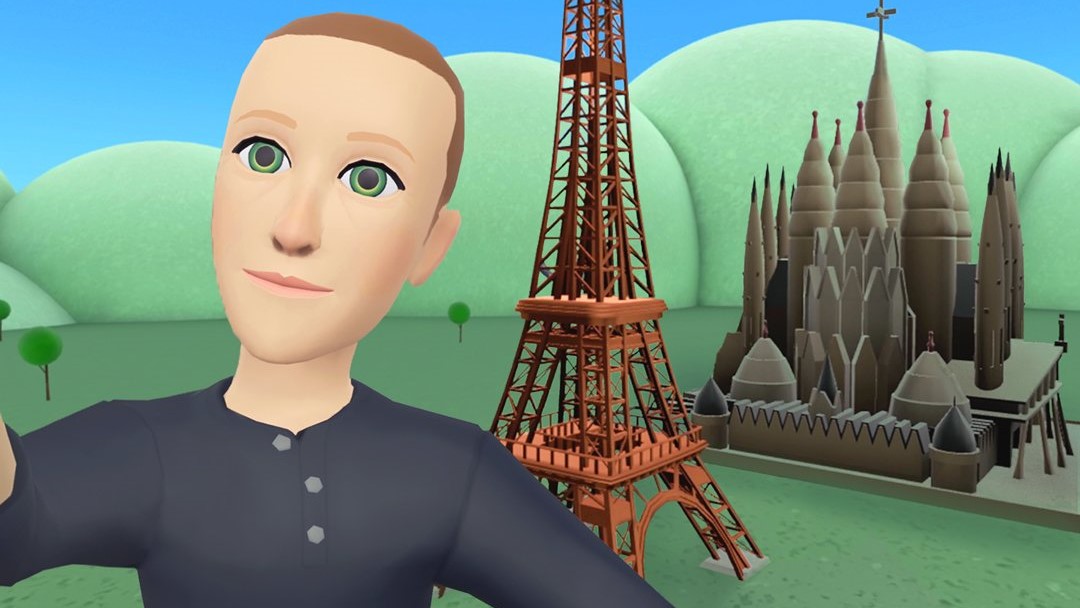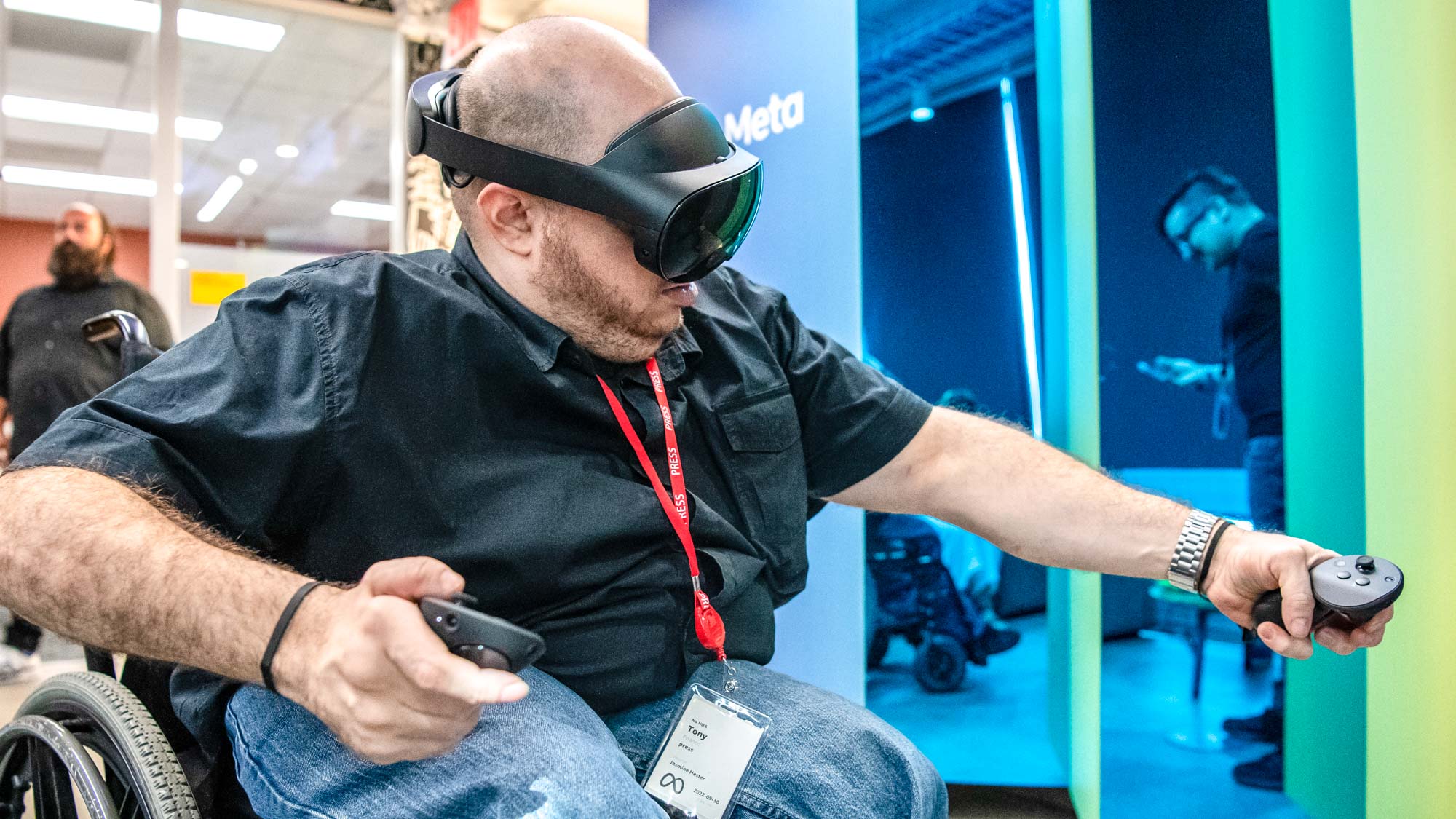I’m not convinced the metaverse will ever be viable
Will the metaverse ever be a thing? I'm not so sure

I’m both a tech journalist and tech enthusiast. You’d think this would give me a better understanding of what the metaverse represents. But as things stand, I don’t get the tech industry’s desire to make the metaverse a thing. We’re being sold this lofty idea of a shared virtual reality without anyone knowing what it is. I'd even argue the companies promoting the metaverse are equally clueless.
A couple of weeks ago, I attend a press event for the recently announced Meta Quest Pro. The main purpose of this $1,499 product is to allow professionals to work and meet in virtual environments. This new VR headset is an objective improvement over the Meta Quest 2 due to its enhanced tracking features that can better capture one’s facial and hand gestures. It’s all very impressive.
But despite the advancements I’ve witnessed in VR, I’m still not convinced this whole metaverse venture will ever pan out — at least the way Meta and other companies think it will. Perhaps one day, something will revolutionize this field and actually make working and collaborating in VR palatable. However, I don’t believe the metaverse will ever be a viable platform for most people.
The metaverse feels impersonal
Humans are social creatures by nature. Evolution has made us crave interactions with others, even if we’re miles apart. Before the digital age, we had mail, radio and telephones (among other things) to keep us connected. Nowadays, we have the internet and various wireless technologies like Bluetooth, Wi-Fi and GPS. But while these technologies serve their ultimate purpose, they don’t feel as personal as physically being in a room with another human being. The metaverse is merely the latest iteration of these technologies.
Perhaps I’m being too reductive here, but the metaverse seems like a more advanced version of Second Life or PlayStation Home. Like the metaverse, those platforms delivered virtual worlds where users could congregate. Perhaps that’s why I shrug my shoulders whenever I hear about the metaverse. To coin a phrase, I’ve heard this song before. Second Life is (somehow) still around but PlayStation Home has been dead for the better part of a decade. I can’t help but think the metaverse will also follow this trajectory.
The reason I feel this way is because virtual worlds can often feel cold and sterile. Sure, running around a fake mall or forest with others can be amusing. Gathering in an in-game hub is also more interesting than sitting in an online lobby where all you see are user names. But after the novelty of virtual reality wears off, you realize you’d rather be sitting beside another person — whether it’s in an office meeting or on a couch playing a game.

But that isn’t to say the metaverse is completely impersonal. During one Meta Quest Pro demo, I sat in a virtual office meeting room with a PR rep’s avatar. Because of how the Quest Pro captures one’s body language and facial expressions, it almost felt like I was speaking with a real person. In fact, when the PR rep virtually sat next to me, I experienced the same bit of unease I do whenever someone I’m unfamiliar with enters my personal space. I suppose that demonstrates how far VR technology has come.
Advancements aside, however, VR interactions simply aren’t as satisfying as the real thing. Barring some miracle technological revolution, I don’t see how VR can ever replicate a real-world experience. Also, I’d rather get on a video call with someone rather than shell out nearly two thousand dollars to talk to them via a headset. Video calls aren’t exactly perfect (hence Meta’s desire to create better conference experiences), but at least I’m looking at a real person.
Meta teased Instant Avatars, which are avatars you create by using your phone to scan your face. These are far more realistic than the Sims-ish avatars Meta currently has. Perhaps it will be better to talk to an avatar that looks like a real person, but I remain skeptical.
The metaverse and accessibility

I plan to go over this at length in an upcoming editorial, but as a wheelchair user, I wanted to briefly discuss accessibility in the metaverse based on my experience with the Meta Quest Pro and older VR headsets.
To Meta’s credit, the Meta Quest Pro is the most accessible VR headset I’ve used. It’s infinitely superior to the original Oculus Rift and PlayStation VR. Not only is this headset completely wireless, but because of its open periphery design, I’m able to see my surroundings and thus better avoid obstacles. These features benefit regular users, but they’re game-changers for people like me.
Though the Meta Quest Pro is more accessible than previous headsets, it’s still not great. For example, it wasn’t easy to simultaneously hold the Quest Pro controllers and wheel around the environment. Painting on a digital canvas in one demo was also somewhat cumbersome because I’m sitting down. But considering there were demos that tracked my hand movements without the need for controllers, I have some faith Meta can figure out a controller-free solution that will make it easier for wheelchair users to move in VR.
Meta showed wheelchair options for avatars. In terms of representation, I think that’s a great option for folks who want to take advantage of it. And if we’re supposed to inhabit digital worlds, I’d rather do it in a form that best represents me. I’m not sure how well this feature will work out, but I’m glad it exists.
I realize I’m being somewhat ambivalent in this section. Defining accessibility is tricky enough, but toss in an ill-defined virtual platform and things become even more confusing. But as I said, the metaverse has the potential for a greater degree of accessibility because it lacks physical barriers. I hope companies keep accessibility in mind when trying to build out their respective metaverses.
Outlook
I consider myself a techno-optimist and honestly believe technology gives us the means of attaining our full potential as a species. I can see how fusion engines, artificial intelligence, quantum computing and even starships can aid and empower the human race. However, I can’t say the same about the metaverse.
At best, the metaverse seems to deliver a more interesting way to interact with other people. At worst, it’s little more than empty buzzwords and concepts that companies are inexplicably sinking millions of dollars into.
Perhaps I’m being too short-sighted, or even cynical about the metaverse. But we’ve already been down this road before with platforms like Second Life and PlayStation Home. Because of that, I can’t help but see this whole venture as a waste of time and money. However, I’ll legitimately be pleased to say I was wrong if and when anyone convinces me the metaverse is worthwhile. But I don’t see that happening anytime soon, or ever.
Sign up to get the BEST of Tom's Guide direct to your inbox.
Get instant access to breaking news, the hottest reviews, great deals and helpful tips.

Tony is a computing writer at Tom’s Guide covering laptops, tablets, Windows, and iOS. During his off-hours, Tony enjoys reading comic books, playing video games, reading speculative fiction novels, and spending too much time on X/Twitter. His non-nerdy pursuits involve attending Hard Rock/Heavy Metal concerts and going to NYC bars with friends and colleagues. His work has appeared in publications such as Laptop Mag, PC Mag, and various independent gaming sites.
-
Eterychan Even Meta's employees don't have the faintest clue what are they supposed to do in Metaverse. The problem with Metaverse is it brings nothing new to the table, as you said. We have socialized inside game rooms since decades ago. We have VR video games for quite some time already.Reply
Attending meeting in VR space? Who wants that? I even turn off cam in zoom meetings. -
Finora Articles like this are just oddly lacking in historical perspective. Metaverses like Secondlife have been around for almost 20 years.Reply
Those of us who frequent them (16 years or so for me), are bemused by all the Meta and associated media buzz like they were discovering a new thing. We know what works in the metaverse - we figured it out years ago. Oh and we have legs... -
USAFRet Reply
"a year"?admin said:The tech industry has been trying to push the idea of the metaverse for over a year.
Try a couple of decades.
As noted above, SecondLife.
Earlier, there were all sorts of "3D people worlds".
Some based on the original Quake engine.
